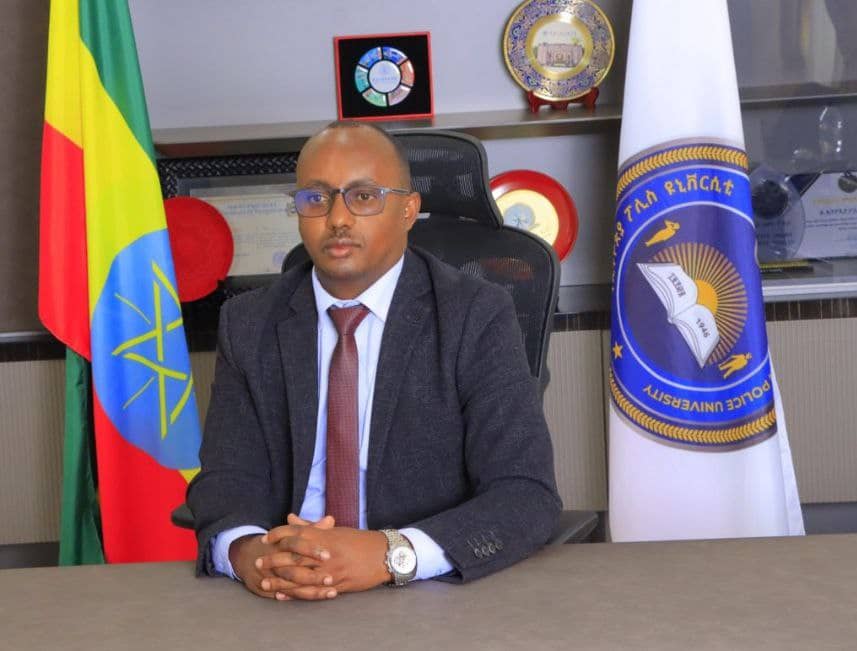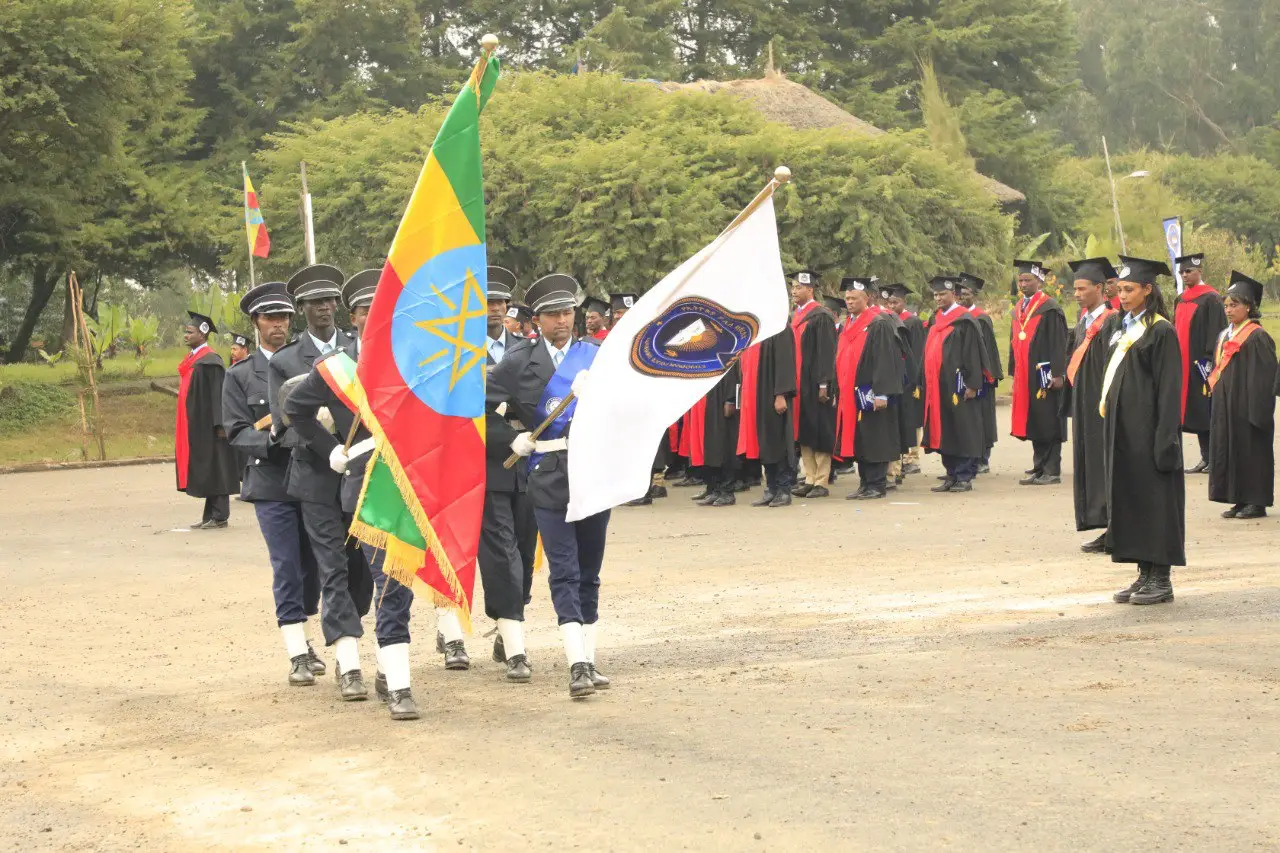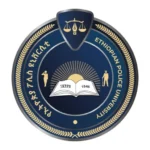PROTECT WITH COURAGE, SERVE WITH COMPASSION!
Ethiopian Police University (EPU) is an educational institution offering a range of short-term, diploma, undergraduate, and graduate programs in policing and related fields to enhance police services.
Our History
Ethiopian Police University (EPU), originally established as Aba Dina Police College in 1946, has undergone significant transformation over the decades, achieving full university status in December 2020. EPU has played a vital role in training thousands of law enforcement personnel and expanding its academic programs to meet the growing demand for qualified police professionals. The university actively engages in problem-solving research, offers expert consultancy and community services, and plays a central role in establishing national standards for police education and training. Additionally, it provides technical and material support to regional police colleges and training centers across the country.

Leadership and Management

Tamirat Mulugeta (Ph.D)
Interim President of Ethiopian Police University

D/com Daniel Birhanu
Vice president for Administration and Development

Assistant Commissioner Teshale Mikore
Vice President for Research, Consultancy and Community Services

Assistance Commissioner Dereje Asfaw
Training Vice President

D/com Abel Gebremedhn(Ph.D)
Academic Interim Vice President
Ethiopian Police University
Our Special Programs
Ethiopian Police University hosts specialized programs that equip students with the knowledge and skills essential for modern policing. From practical technical training at the Police TVET College to advanced programs in crime prevention, forensic science, healthcare, and leadership, EPU strives to prepare ethical, skilled, and service-oriented law enforcement professionals.

Crime Prevention & Public Security Studies
Established in 2011, the Crime Prevention and Public Security College (CCPPS) trains police leaders and promotes public safety through academic programs, practical strategies, and international collaboration. It focuses on crime prevention, intelligence, and leadership development.

Crime Investigation & Forensic Science
The College of Crime Investigation and Forensic Science, established in 2011 under Ethiopian Police University, offers specialized programs in Forensic Science, Crime Investigation, and IT & Cybersecurity. It emphasizes academic excellence, hands-on training, and professional readiness, supported by modern labs, online learning, and student clubs.

Leadership and Governance
The College of Leadership and Governance trains professionals to lead and reform Ethiopia’s security sector through programs in police management, finance, and leadership. With a focus on good governance and service-oriented policing, it prepares students to enhance law enforcement, financial accountability, and institutional transformation.

Police Health Science College
The College of Health Sciences trains healthcare professionals and equips police officers with essential medical skills to support public health and safety. It offers programs in Nursing, Pharmacy, Medical Laboratory, and Medicine, tailored to the police service context. Combining theory and practice, the College prepares graduates to provide emergency care, support disease prevention, and enhance community health in Ethiopia.

Police TVET College
The Police TVET College in Addis Ababa, originally established in the 1930s, has a long history of training police personnel, including Nelson Mandela in 1963. Reorganized in 2021 under Ethiopian Police University, it now offers practical, career-oriented education through eight specialized departments, focusing on technical and vocational skills essential for modern policing and public safety.
Ethiopian Police University
Vision
To Become the Center of Excellence in Police Education and Training in Africa by 2030

Ethiopian Police University
Mission
What people are saying…
Common Questions
News and Events
-
Ethiopian Police University Records Strong Performance in Education and TrainingJanuary 12, 2026– Bishoftu**
The Ethiopian Police University has recorded significant achievements in the education and training sector, the Commander-in-Chief of the Ethiopian Federal Police, Honorable Commissioner General Demelash Gebremichael, stated.The Commissioner General made the remarks during the Ethiopian Federal Police six-month performance review program held in Bishoftu city. He noted that the Ethiopian Federal Police delivered effective results…
-
Ethiopian Police University Holds Graduation Ceremony for 2017 E.C. Cadet Field Training at Awash 7 Campus
A graduation program was held on May 9, 2025 (Ginbot 1, 2017 E.C) at Ethiopian Police University, Awash 7 Campus, for the graduating cadets of the 2017 academic year.Ethiopian Police University, which is entrusted with the national responsibility of producing knowledgeable, competent, and competitive police leaders and officers, continues to fulfill this mission effectively. Today’s…
-
Ethiopian Federal Police Wins First Place for Best Police Mobile App at Global Summit
On May 16, 2025 (Ginbot 08, 2017 E.C), the Ethiopian Federal Police Citizens’ Application (EFPApp) won first place in the Best Police Mobile Application category at the international level. Representing Ethiopia, the Federal Police presented the EFPApp at the World Police Summit held in Dubai, United Arab Emirates, where it stood out among global entries…
-
EPU Provides Preparatory Training for Grade 12 National Exit Exam Candidates
May 17, 2025 (Ginbot 09, 2017 E.C) – Sendafa, Ethiopian Police University It has been announced that Grade 12 students at Ethiopian Police University who are scheduled to sit for the 2017 E.C. National Exit Examination are currently undergoing preparatory training. The students, who will take the examination online, are receiving structured preparatory and practical…





